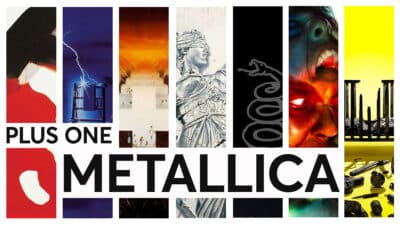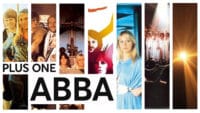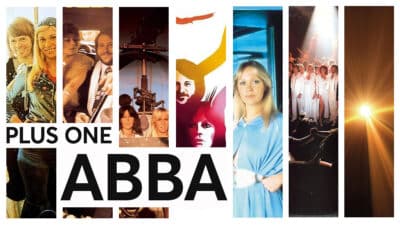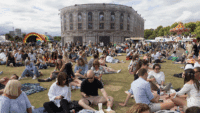Feature
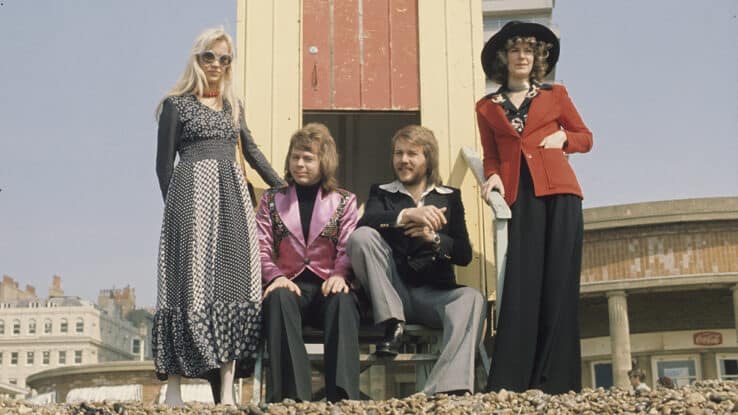
Looking Back
ABBA’s Waterloo turns 50
Celebrating the europop album that sent the Swedish quartet stratospheric, here’s how it sounds half a century later…
The year is 1974, and ABBA – Agnetha Fältskog, Anni-Frid Lyngstad, Björn Ulvaeus and Benny Andersson – are representing Sweden at the Eurovision Song Contest in Brighton. There is applause as conductor Sven-Olaf Walldoff (who’s “really entered into the spirit of it all”) takes to the stage, naturally, dressed as Napoleon.
A glam rock intro starts, and two beautiful women come galloping down the ritzy gold stage catwalk, smiling broadly. Anni-Frid, the red head, is embracing 70s cowboy-core in white leather and rhinestones, while blonde Agnetha, resplendent in sky-blue flares and matching cap (a look that was to become synonymous with the group decades later), shimmies around on outrageously high silver platform boots. The pair are quite literally glittering, and, 50 years on, despite the grainy YouTube footage, you cannot take your eyes off them.
This, of course, is ‘Waterloo’ – a track about the battle that brought about Napoleon’s demise – and it’s about to launch ABBA into the annals of cultural history, shaping the face of pop music for the latter half of the 21st century, and beyond. The legacy is unparalleled. From drag outfits to movie blockbusters, their influence is felt everywhere.
But let’s dial it back. Before the digital avatars, before Eurovision, there was Waterloo, the album that started everything. Recorded during the latter part of 1973 in Stockholm, Waterloo was the group’s sophomore album after their 1973 debut, Ring Ring, and the first that saw them record under the name ABBA – an abbreviation of the group’s forenames, although allegedly their manager had been referring to them as such for some time.
Opening with title track ‘Waterloo’, it’s clear from the outset that the group had something special. Written specifically for inclusion in Eurovision (after the group finished third with ‘Ring Ring’ the previous year in the Swedish pre-selection rounds), the song’s production style was heavily influenced by Phil Spector’s infamous “Wall of Sound” – a technique that featured layer upon layer of instrumental overdubs which suited Benny and Björn’s lavish and theatrical songwriting style. Fusing lashings of glam rock with Agnetha and Anni-Frid’s charming vocal harmonies (and that dramatic piano line), ‘Waterloo’ is arguably ABBA’s most famous track to date and the one that’ll drag even the most volatile ABBA naysayers onto the dancefloor.
After that colossal opener, the album continues on its merry way, fusing multiple musical styles and tapping into a distinctly 70s vein. The glam rock influence is prevalent on tracks ‘King Kong Song’ and ‘Watch Out’ – you have to remember that UK bands such as Slade and Mud were topping the charts at that time, so it’s impossible not to make comparisons – while odes to the trad crooner scene are paid on ‘Hasta Mañana’ and ‘Gonna Sing You My Lovesong’.
Other stand-out tracks include the twinkly low-key disco track ‘My Mama Said’ (which sounds like the best bit of every Bee Gees song) plus ‘Honey Honey’ (the follow-up single to ‘Waterloo’), an infectious ear worm of Agnetha and Anni-Frid’s lush doo-wop melodies.
This is – to echo Alan Partridge, another die-hard ABBA fan – lovely stuff. But weirdly, even now, some people still find the time to put ABBA down. This writer, as a fan, has often found herself racing to the defence of these Swedish pop stars, purely because she can’t understand how anyone can feel any vitriol towards what is, essentially, some of the greatest music ever written. It’s telling though that, despite struggles within the band, divorce, et. al, the vast majority of human beings still feel an overwhelming fondness for them. The sell-out ABBA Voyage performances are testament to that.
50 years later, Waterloo is still widely regarded as a Europop classic album, and the springboard from which ABBA were launched into the public consciousness. In fact, ABBA went on to become the top-selling act of the decade following Eurovision. Their self-titled third album was released in 1975, with tracks ‘Mamma Mia’, ‘SOS’, and ‘I Do, I Do I Do, I Do, I Do’ becoming another set of chart-topping classics. Love them or hate them, ABBA had taken over the world, and this was only the beginning…
Celebrate 50 years of ‘Waterloo’ at ABBA Voyage – with tickets available here.
Photo credit: Anwar Hussein/Getty Images





